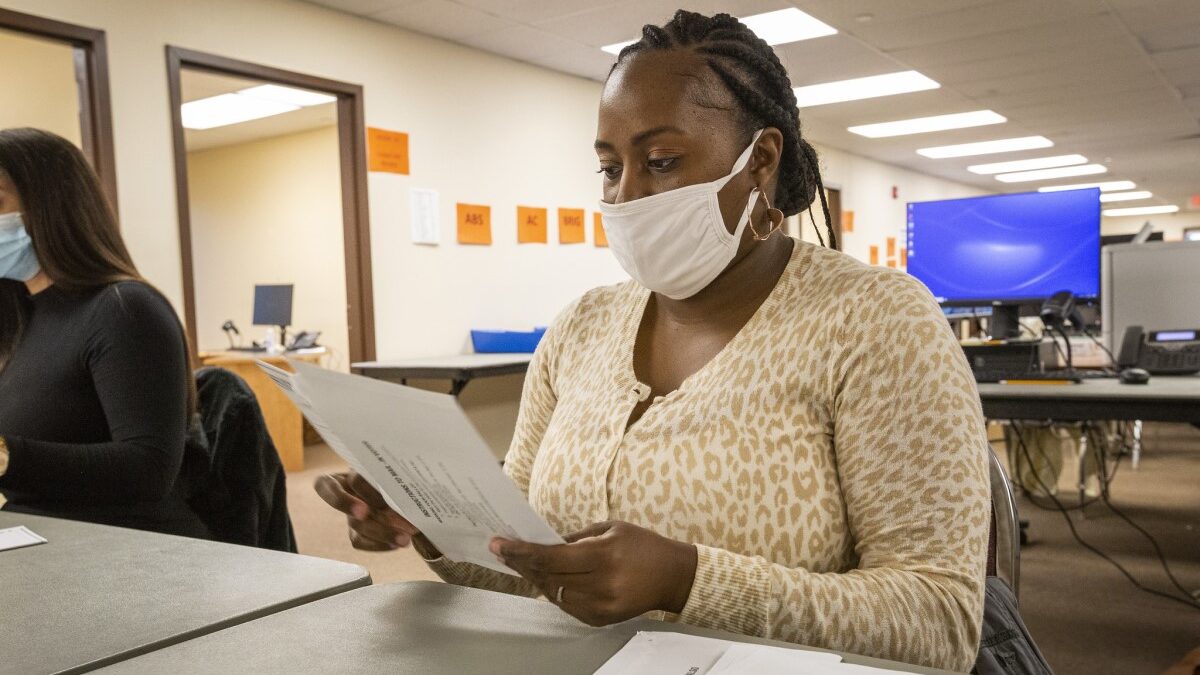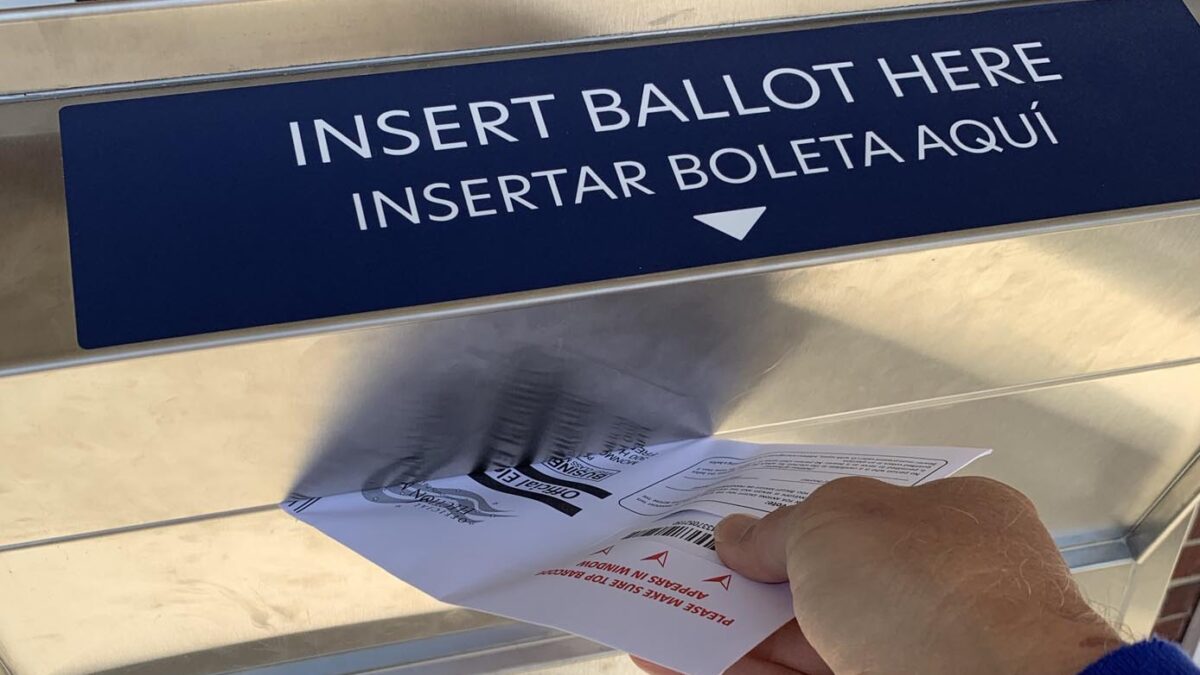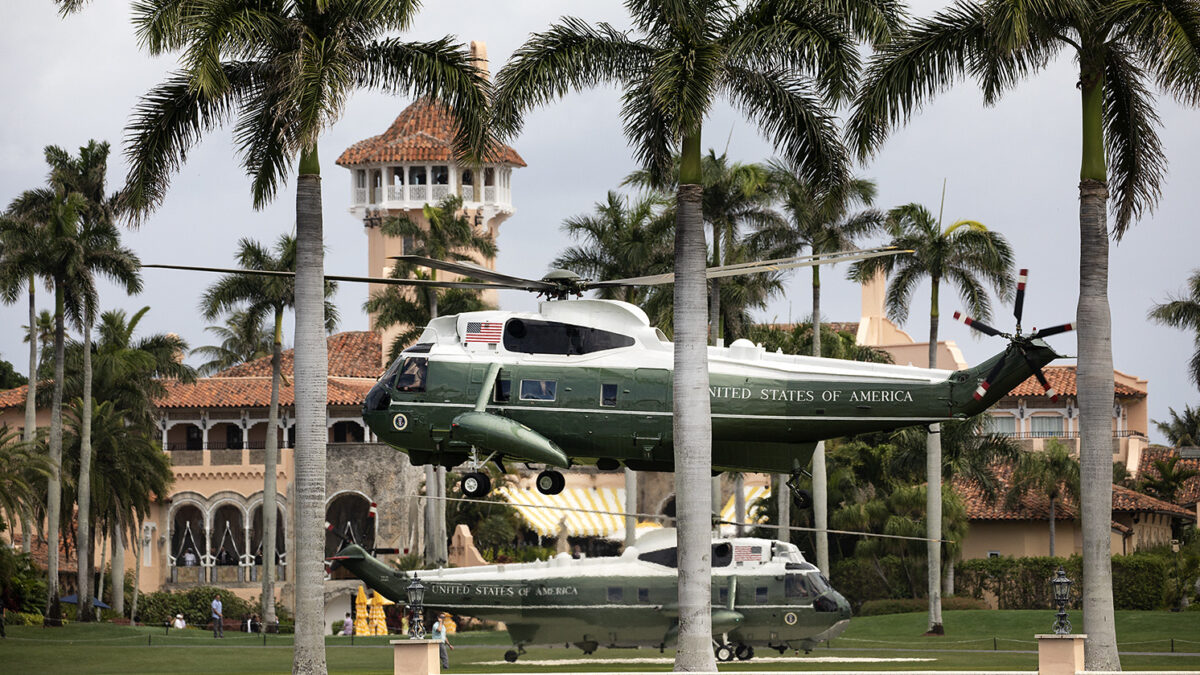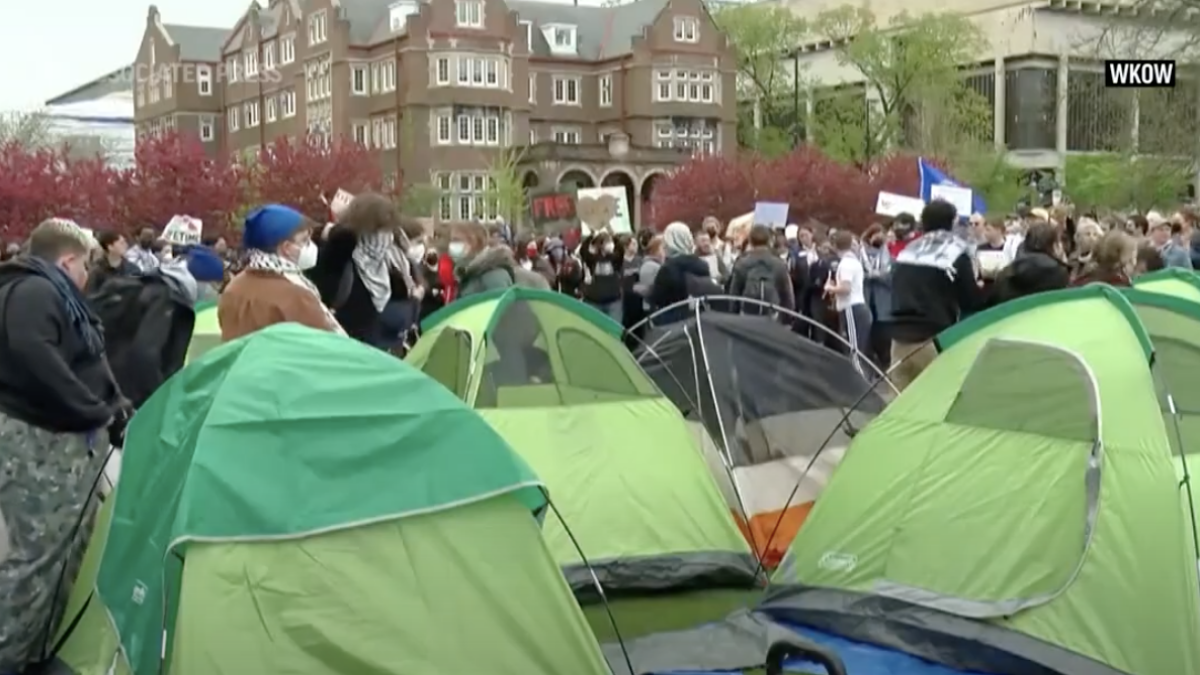Forcing former President Donald Trump to sit in a courthouse for up to eight weeks in a case that both sides of the aisle have deemed “dubious” at best is deliberate election interference by vendetta-driven Democrats.
Rogue Manhattan District Attorney Alvin Bragg indicted Trump on 34 counts related to allegations that Trump had his then-lawyer Michael Cohen pay money to pornographer Stormy Daniels to cover an alleged affair he had years earlier. Bragg claimed Trump falsified business records, breaking the law by having his company report payments to Daniels as “legal fees” instead of campaign expenditures. Legal experts such as The Federalist’s Margot Cleveland have called the indictment “pathetic and partisan.”
Now Trump will have to be physically present in the New York courtroom for any proceedings involving the jury, which means every weekday. The only possible exception is Wednesdays, when the court does not convene — but that depends on whether Judge Juan Merchan, who is overseeing the case, grants Trump lawyer Todd Blanche’s request that the presumptive Republican nominee be allowed one weekday to conduct campaign events.
“As you know President Trump is very busy,” Blanche told Judge Merchan, according to The Washington Post. But as of this writing, Merchan would not confirm whether the former president would be excused from Wednesday proceedings and warned “that he may have to schedule court on Wednesdays if they start running behind schedule,” according to the Post. Either way, Trump’s ability to campaign will be severely curtailed.
While experts on both sides of the aisle have indicated the case lacks merit and will be unlikely to succeed in court, Trump is already paying the penalty. Each day spent in a courthouse is a day spent off the campaign trail, costing Trump both time and money. And even when this trial ends, the former president still faces other criminal cases that could potentially force him back into a courtroom.
Meanwhile, President Joe Biden is free to hit the campaign trail without the threat of his opponent drowning him out with countless rallies and highlighting the incumbent’s track record.
Trump currently leads Biden in several key swing states and general matchup polls, but how much longer can Trump maintain his edge if his ability to communicate to voters is limited while Biden gets unfettered access to the American public?
Merchan also rebuffed a request from Blanche to excuse the former president next Thursday so he could attend the Supreme Court hearing on his immunity claims as part of a separate lawfare case.
“Arguing before the Supreme Court is a big deal, and I can certainly appreciate why your client would want to be there, but a trial in New York Supreme Court … is also a big deal,” Merchan said, according to the New York Post. “I will see him here next week.”
Merchan also refused to give an affirmative answer as to whether Trump could attend his son Barron’s high school graduation on May 17.
“It really depends on if we are on time and where we are in the trial,” Merchan said of the request, according to Forbes.
All this effective election interference is just adding insult to injury, considering the charges themselves are blatant lawfare. Both the Department of Justice and federal prosecutors in the Southern District of New York opted not to charge Trump in 2018 when charges were being brought against Cohen, but Bragg, who reportedly received $500,000 from a PAC backed by billionaire George Soros, went ahead with charges.
[READ: Majority Of Voters Recognize Democrat Lawfare Against Trump Is Political Election Interference]
As The Federalist’s Margot Cleveland noted, Bragg did not identify what supposed crime Trump intended to conceal by allegedly “falsifying business records.” As she explained, Bragg must do so for the charges to qualify as felonies.
Bragg suggested Trump concealed the alleged payments to increase his chance of winning in 2016. He also claimed Trump “orchestrated a scheme with others to influence the 2016 presidential election by identifying and purchasing negative information about him to suppress its publication and benefit the Defendant’s electoral prospects.”
Cleveland argues, however, that “there is nothing unlawful about purchasing negative information to suppress its publication.”







